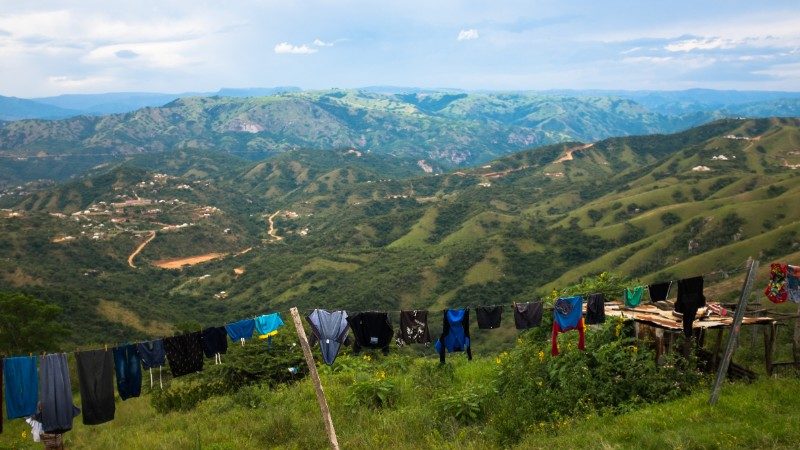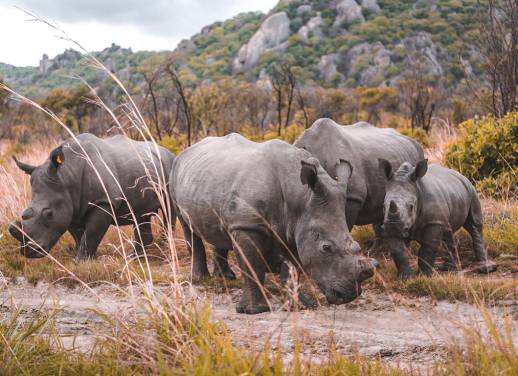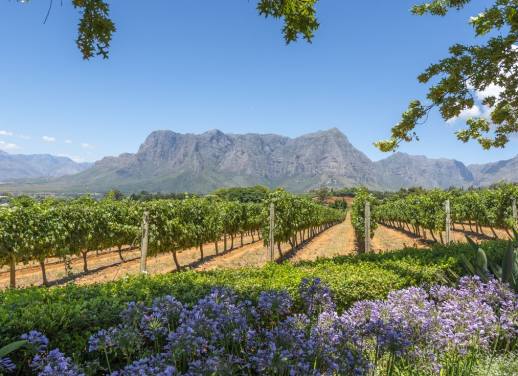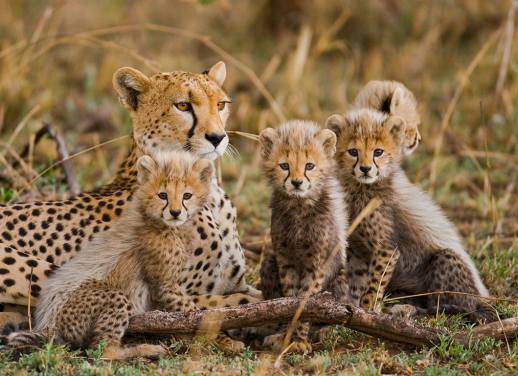“My name is Khanyo and it means mother of lights. I’m not a mother yet but I am a teacher, so I guess it still applies.”
I’m sitting on an overstuffed blue couch next to Khanyo, a 20-year-old Zulu woman from South Africa. Her hair is wrapped under a headscarf and she has a grin that’s all cheek, making her the spitting image of her mother, Mama Chanco.
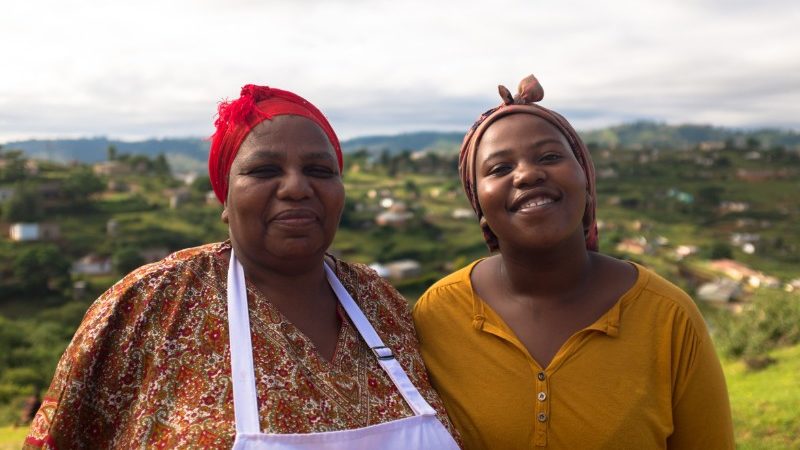
Khanyo and Mama Chanco
My group and I have been invited to spend the night, modern Zulu-style, at their home in the KwaZulu-Natal province. We’re travelling on Intrepid’s 22-day Kruger, Coast and Cape tour, and we’ve just arrived in the Valley of a Thousand Hills, aka Zululand. From my seat on the couch, I can see out the living room window to the green terraces dotted with Zulu houses. They all seem to cling precariously to the earth, as if one rumble would send them sliding. In front of each house is a collection of kids, chickens, goats and cows. So many cows.
It makes sense, considering the Zulu people still adhere to the tradition of dowry. When a young woman is engaged to be married, her hand is exchanged with the blessing of her father and the payment of a cow or two. Or three, depending on her status in the community.
RELATED: WHAT IT’S REALLY LIKE EXPLORING SOUTHERN AFRICA ON AN INTREPID TRIP
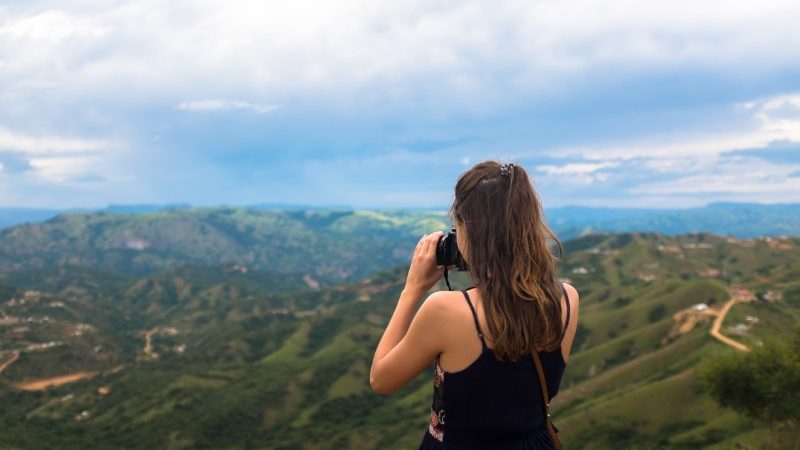
What a view!
It’s hard, as a traveller, to wrap your head around these traditions. The idea of checking marital bed sheets for blood or worshipping a king with six wives and 27 children seems otherworldly. But that’s exactly what makes these homestay experiences so special; they open your eyes to another way of living, and can often help you gain a new perspective.
The Zulu people are a Bantu group of Southern Africa and the largest ethnic group in South Africa. ‘Kwa’ means ‘place of’ and, under apartheid, the KwaZulu-Natal region was created for the Zulu and Zulu only.
It’s here that their traditions, folklore, singing and dancing both thrived and survived. Today young boys and girls still learn the Ingoma dance, one of the purest remains of Zulu tradition. It’s a dance that was once a battle-cry, all high leg kicks and drums, and is nowadays performed at weddings and coming-of-age ceremonies.
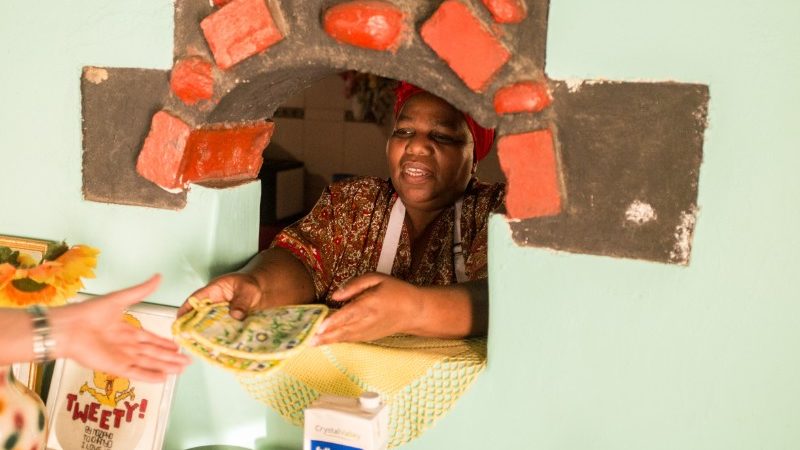
Mama‘s kitchen
I’m not saying cows for dowries is the way to go, but I do value being able to talk about these traditions with a local as open-minded and open-hearted Khanyo. She’s staunchly independent when asked about her marriage prospects, saying “I can’t imagine getting married any time soon; he’d have to be the best man this side of Durban. I want to earn my own money and live my own life”.
RELATED: WHAT’S THE MOST IMPORTANT TRAIT A TRAVELLER CAN HAVE? THIS.
Khanyo comes from a line of strong women. You only need to have one chat with Mama Chanco and you’ll understand. After her husband passed away, Mama ruled her roost with an iron fist and the best ujeqe (steamed bread) you’ll taste in all of Zululand, and her daughters are testament to that.
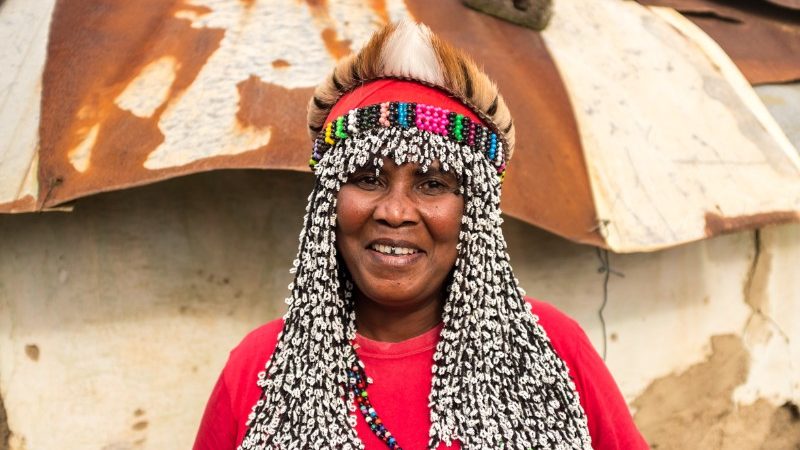
Meeting the healer in the village
Mama reminds me of the traditional healer I met earlier that day. A group of us had gathered inside her rondavel hut to listen to stories of ancestral spirits, giant pythons and coca-cola diabetes cures.
RELATED: ONE TRAVELLER’S ADVENTURES ON THE SERENGETI TRAIL
We sat in a semi-circle surrounded by beads, herbs and the skulls of mysterious animals while a translator helped her answer our questions. She told us that the gift of healing is passed down through the family, as dictated by the ancestors, and that she received the call-up in her late teens.
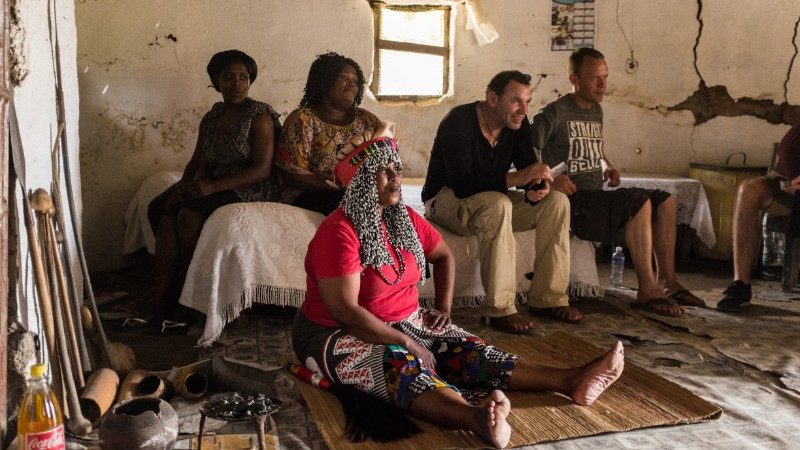
Learning about the gift of healing
She spoke with a beautifully calm voice full of all the guttural clicks that are the calling card of Zulu language. She explained that, while traditional Zulu healers can’t mend broken bones, they can give you herbs to help with fertility, or craft you a love potion “for your second wife”.
INTERESTED IN AN ADVENTURE IN AFRICA? CHECK OUT OUR RANGE OF SMALL GROUP TOURS NOW
From my understanding, she seemed to deal mostly with emotional issues. Therapy isn’t a common (or available) practice here, and so the locals who visit her are often searching for another form of support.
I decide to take her up on a fortune reading after the Q&A. I head back into the hut, my heart beating surprisingly fast, and sit down with my legs stretched out in front of me as instructed. She picks up a cow horn full of bones and shakes it. She throws the bones onto the carpet and touches them each with a feather.
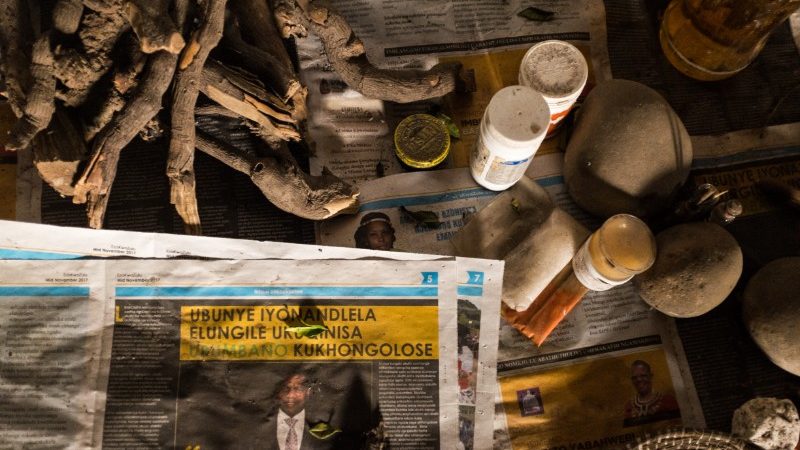
What fortune lies within?
“She wants you to know that the ancestors are here and they’re asking how you’re feeling,” says the translator. “Pretty good,” I stammer in reply, looking around the empty room as if expecting to see a bunch of Zulu elders sitting on the cushions beside me.
SUBSCRIBE TO INTREPID’S NEWSLETTER FOR TRAVEL TIPS, COMPETITIONS, GIVEAWAYS & MORE
The theme of the reading turns out to be my love life (not by my own choice, FYI). According to the healer, I’m yet to meet the man of my dreams but he is going to love me, marry me, and give me three kids. Two girls and one boy, if we’re being particular.
I walk out of her hut feeling weirdly shaken.
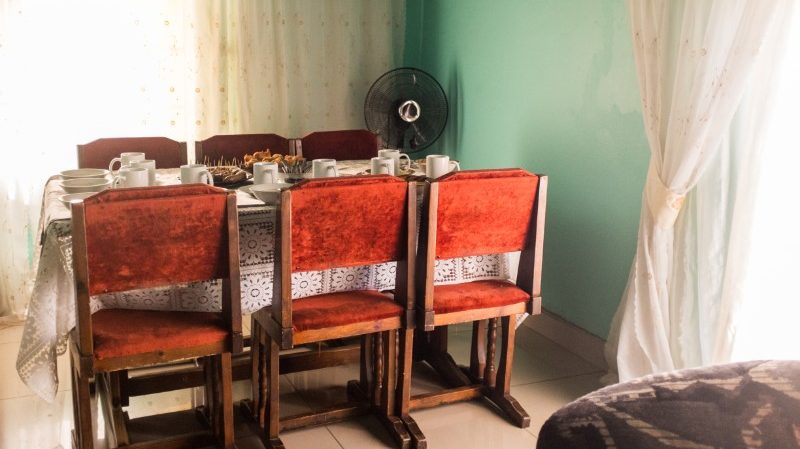
Getting ready for dinner!
Fast forward two hours and I’m sitting down to dinner with Khanyo, Mama and the rest of our group. I’m thinking about the Zulu term for “family” (umndeni), which is one that includes all people staying in the same home, regardless of blood relation. And as I sit between these two women, both with remarkably different life experiences to mine, I can’t help but feel like family.
Ready to break out of your comfort zone? Open yourself up to new experiences on a small group adventure in Africa now.
All images by Tayla Gentle.

